Leadership development
MBTI-centered Leadership Development Helps 16,000 Nurses Improve Patient Care
Melissa Summer, The Myers-Briggs Company
Delivery nurses and midwives find their voice and better leadership skills to improve patient experience on a large scale, online, in this case study
How personality type affects team performance and job satisfaction
Global Marketing, The Myers-Briggs Company
New research sends clear message to team leaders
Why self-awareness is not enough
Kevin Wood, The Myers-Briggs Company
Business psychology experts on leadership and people development in organizations
People have forgotten how to work with each other
Kevin Wood, The Myers-Briggs Company
Our consultants share the workplace trends and topics they’re hearing about
Why and how innovative organizations welcome conflict
Global Marketing, The Myers-Briggs Company
Effective conflict management is a pillar of high-performing organizations
Targeted Leadership Development and Succession Planning through CPI 260® Certification
Melissa Summer, The Myers-Briggs Company
The CPI 260 assessment enables HR and talent development professionals to find and develop high-potential employees, making it an essential tool for your investment in employee training and development.
Unlocking Team and Leadership Potential through FIRO Certification
Melissa Summer and Kevin Wood, The Myers-Briggs Company
In the ever-evolving landscape of HR and training and development, organizations are recognizing the significance of assessments in unlocking individual and team potential. Among these assessments, the Fundamental Interpersonal Relations Orientation™ (FIRO®) assessment stands out as a powerful tool for team development and leadership growth.
How stress and personality type affect leader’s risk tolerance & decision-making
Sherrie Haynie, Senior Director of US Professional Services for The Myers-Briggs Company
Stress can affect a leader’s approach to risk which is strongly tied to investment and business strategy. But if a leader knows how their personality type affects their natural approach to risk-taking, as well as what stresses them out in the first place, they’re less likely to react to stress by making poor decisions.
3 Types of workplace conflict – and a tool to help resolve them
Vanessa Bradford
There are three types of conflict that people experience at work. Fortunately, HR professionals, leadership consultants, and executive coaches can help leaders and employees improve their conflict resolution skills with the FIRO-B® assessment.
In-person development and the importance of human synchronization
Melissa Summer, The Myers-Briggs Company
What is human synchronization and why is it important for learning and development trainers, consultants and coaches to consider?
Does the MBTI assessment work across cultures?
Melissa Summer, The Myers-Briggs Company
The world has been flattened by technology and working across county and cultural borders is now the norm. But can you use the Myers-Briggs Type Indicator assessment across borders? Here’s what you should know.
Use conflict as a health check for your team
Kevin Wood, The Myers-Briggs Company
Is lack of conflict a sign of dysfunction? And what do people feel about conflict today?
How to build a more effective hybrid workplace
Global Marketing, The Myers-Briggs Company
Paying closer attention to employee needs is the way to make remote, in-office, and hybrid teams function better
What are the new sources of conflict at work?
Kevin Wood, The Myers-Briggs Company
Learn the types and causes of conflict to be better prepared in how you manage conflict
Conflict at work: what are your options?
Melissa Summer, The Myers-Briggs Company
If conflict management is something you dread, here’s how to start turning it around
Galderma Skincare Uses the MBTI® Tool to Navigate Major Company Change
Melissa Summer, The Myers-Briggs Company
How does a skincare giant smooth out the wrinkles of organizational change?
Connecting with the people you lead
Melissa Summer, The Myers-Briggs Company
Dr. Martin Boult shares his expertise on leadership and connection in this episode of The Myers-Briggs Company Podcast.
Conflict Management
Melissa Summer, The Myers-Briggs Company
How can conflict management save organizations money?
Leadership, Extraversion & Introversion
Melissa Summer, The Myers-Briggs Company
What should leaders be aware of about these well-known personality differences?
Psychology of Change
Melissa Summer, The Myers-Briggs Company
What is change management and why does it matter for organizations?
Introducing The Myers-Briggs Company Podcast
Melissa Summer, The Myers-Briggs Company
The Myers-Briggs Company is launching a new podcast about psychology, personality, work life, and how to get the best from life.
Were you asked if you wanted to go back to the office?
Kevin Wood, The Myers-Briggs Company
If not, you might be part of a hybrid strategy that’s about to fail.
Social contracts, returning to the office and retaining your people in the new hybrid workplace
Melissa Summer, The Myers-Briggs Company
As employees return to the office, they’re expecting more flexibility in their social contracts with employers. How can HR help?
Using interpersonal needs to make the hybrid model work for teams
Melissa Summer, The Myers-Briggs Company
Is it possible to get the best of both worlds with hybrid work?
How to develop high potential people using MBTI personality insights
Melissa Summer, The Myers-Briggs Company
HR professionals get insight into team dynamics, individual strengths and more with potential leaders when using the Myers-Briggs Type Indicator assessment.
Using Personality Assessments for Team Building
Melissa Summer, Global Content Marketing Manager
How can personality assessments like the MBTI tool help teams work together more effectively and understand each other better?
Building trust through transparency
Catherine Ellwood, Principle Consultant, The Myers-Briggs Company
How openness and predictability make teams more effective
Who leads the way?
Melissa Summer, Content Marketing and PR Manager, The Myers-Briggs Company
Gender equality, diversity, leadership and International Women’s Day
Top 10 Leadership Development Books
The Myers-Briggs Company
Our recommended titles for you this World Book Day
Leading self
Claire Bremner, Principal Consultant, The Myers-Briggs Company
Why is self-awareness important for leadership?
How to think like an entrepreneur
Rose Collins, Marketing Content Executive, The Myers-Briggs Company
Celebrating Global Entrepreneurship Week
The changing shape of teams
The Myers-Briggs Company
Teams and Google’s Project Aristotle
How to motivate the people you manage
Melissa Summer, PR and Content Marketing Manager at The Myers-Briggs Company
Motivation - more than 'get it done’
Six things managers and executives can do to improve company culture
Jeff Hayes, President and CEO of The Myers-Briggs Company
6 things managers and executives can do
The Psychology of Change
Melissa Summer, Content Marketing and PR Manager at The Myers-Briggs Company
There’s an important part of business growth that’s often overlooked – change.
Put your skates on!
Claire Bremner, Principal Consultant at The Myers-Briggs Company
What can Dancing on Ice teach us about the transferability of skills?
Work digital, play digital

MBTI Talk
How social media and gamification can help employees grow
The changing world of work

MBTI Talk
PeopleFWD 2018 promises insights and practical solutions
Managing conflict

OPP
How can we help you reach better resolutions?
Is conflict holding you back?

OPP
Change your approach to conflict and you can change the outcome
The power of Introversion

OPP
Are introverts being limited by misconceptions?
Developing future leaders

CPP Connect
Fortune 10 senior OD consultant talks about CPI 260 certification experience
Raising self-awareness: What works?
Helen Rayner, Lead Consultant, OPP
Do people with different type preferences use the same or different methods to develop their self-awareness?
How does personality type affect self-awareness?
Helen Rayner, Lead Consultant, OPP
Continue to explore research around self-awareness – this time focusing on the role of your MBTI type.
Self awareness
Helen Rayner, Lead Consultant, OPP
Research results are in! How do people benefit from improved self-awareness and how do they get there?
Improving business results using the MBTI instrument

Sharon Richmond, Principal, Richmond Associates Consulting
How to use research to create MBTI solutions: this post looks at leadership accountability gaps
Hidden figures

Katy Lyne, Principal Consultant, OPP
Gender, leadership and the pressure of organisational culture
Inside Out, Outside In: a model to accelerate leadership growth

Sharon Richmond, Principal, Richmond Associates Consulting
Modern leadership in the context of core activities, blind spots and actions for results.
This girl can

Katy Lyne, Principal Consultant, OPP
Myers, Briggs and International Women’s Day
Leadership strengths through the lens of Type

Aidan Millar - Human Development Consultant for Psychometrics Canada
Research Study exploring leadership strengths through the lens of Type
Decisions, self-confidence and the glass ceiling: can the MBTI framework help?

John Hackston, Head of Thought Leadership, OPP
Exploring the glass ceiling using MBTI data.
10 top tips – add depth to coaching with the MBTI framework

Katy Lyne, Principal Consultant at OPP
Get the most from the MBTI assessment when coaching individuals.
That difficult woman #BloodyDifficultWoman

Penny Moyle, CEO OPP
Personality, gender stereotypes and leadership
Introducing the Core Characters of Type
Betsy Kendall, COO and Head of Professional Services, OPP
How can we make it easier to talk about the real power of MBTI: Type dynamics?
Team development and the power of MBTI Step II
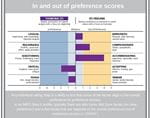
Alexis Hutson - Coach and Mentor to Doctors
Alexis Hutson, professional coach and mentor, shares her experience of using MBTI Step II for team development. A great example of the differences between Step I and Step II.
Type tips for coaching and development

Aidan Millar - Human Development Consultant for Psychometrics Canada
Aidan Millar explores how coaches can help clients flex between operating with their natural MBTI preferences and outside them when necessary.
Leadership: it is rocket science… what quantum physics can teach us about leadership

Katy Lyne - Principal Consultant at OPP
Great leaders respond to shifts and changes, riding them like a wave. Welcome to Quantum Leadership!
Five most common ways to alienate your staff

John Hackston - Head of R&D at OPP
The employment market seems to be improving, which is good news for jobseekers but not necessarily for employers; having more jobs available means that there are more opportunities for workers to leave. All the more important, then, that managers don’t give their people that extra incentive to start looking elsewhere. Here are five of the most common ways in which managers can (and unfortunately do) alienate their staff.
Outsight and playful porridge

Catherine Chapman - Product Manager at OPP
As I watch my daughter polish off her bowl of porridge at breakfast, I ask “What’s wrong with the bit that’s still left in the bowl?” – a tiny bit closest to her but hidden on the inside curve of the bowl remains uneaten. “There isn’t any left!” she replies, and we both laugh as I say “You must have a ‘porridge’ blindspot!”
How many of our leaders have ‘porridge’ blindspots – everyday behaviours that dismay others somehow and to which they are completely oblivious? Can they avoid these blindspots or should we and they just accept them as an authentic part of their personality?
FIRO – getting so much from so little

Jenny Rogers - Executive Coach at Jenny Rogers Coaching
I am coaching the CEO of a large charity. He’s 55 and has been in his job for nine years. He looks grey and anxious, slumping in his chair. “I’m tired of my team treating me like their parent. It’s hard enough being a parent at home. I’m exhausted, our funding is under threat, I don’t think I want to do this job any more”. He tells me readily that he’s been what he calls ‘psychometrified’ many times; but he’s never taken the FIRO- B assessment...
Watch out: overconfident opinion leaders about!

John Hackston - Head of R&D at OPP
Few people would argue against the concept of thought leadership. Not listening to the views of leaders in our field, or ignoring ideas for better ways of doing things, is hardly a recipe for success. However, individual opinion leaders don’t always get it right, and the catch is that those who sound most confident in their pronouncements aren’t necessarily the most accurate.
Conflict and leadership: what does the data say?
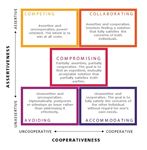
John Hackston - Head of R&D at OPP
Leaders are quick, decisive, and know what they want; they aren’t afraid to make unpopular decisions and they can be fiercely competitive. This might be a somewhat old-fashioned view of leadership, but new research by OPP suggests there is more than a grain of truth here.
Does being true to yourself make you happier?
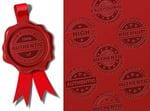
Gaby Walker - R&D Consultant at OPP
Many leaders leave much of their ‘true’ personality at home and try to present themselves at work in the way they think a leader should operate. Leaders absorb these ‘should’ models of leadership from how they see leaders behaving around them (for good or ill), as well as from hoping to emulate leaders generally held up as great: eg Churchill, Branson, etc. On top of this, over the years leadership courses have advocated different styles of leadership, each with its own advantages and disadvantages. Leaders can feel they should be all things to all men; but isn’t it better for leaders to just be themselves, natural and authentic, whether at home or in the workplace?
Trends in global leadership: where does type fit in?
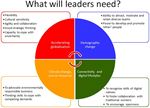
John Hackston - Head of R&D at OPP
This world of ours is changing. That’s hardly an earth-shattering statement. What’s less obvious is that change is happening more and more quickly – it’s difficult to visualise what the world will be like in five years time, still less in 10, 20 or 30 years. And yet this is what organisations need to do. Today’s new entrants, graduates and management trainees will be tomorrow’s leaders, and we need to prepare them for the challenges ahead.
2015 - a year to celebrate coaching
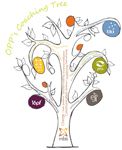
Penny Moyle - CEO at OPP
Coaching has always been an important part of the L&D service that OPP’s consultancy offers. It’s also the mainstay of the practice for many of our independent practitioner customers. Why is there such a demand? In short, organisations need their leaders to develop a great range of responses to the challenges they face, and to develop greater psychological resilience. Additionally, many organisations are seeking to develop coaching skills among line managers, knowing that this too can have a significant and positive impact on organisational performance.
Top five blog articles of 2014
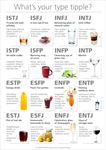
OPP Ltd
Visits to our Personality Matters blog were at an all-time high in 2014, and we covered a wide range of topics in our weekly posts. Over the last 12 months we've talked about the best MBTI-based books and the various resources available for L&D teams. We’ve promoted Movember, and we’ve commented on the Paul Flowers furore. We've also continued to thrive as thought leaders in a diverse range of workplace psychology issues, from recruitment and assessment centres to polarity management. But what are the top five posts that readers have returned to again and again?
Ten more books about MBTI and type that you can't afford to be without!
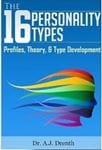
OPP
In the second of our blog posts looking at 20 invaluable books about MBTI® and type, we review another ten titles that have impressed MBTI practitioners or been a key support in their work with the MBTI assessment. As with the first batch, the books featured here are listed in no particular order, and comments are from individual reviewers who responded to our request for reviews on the Linked In group OPP Qualified Professionals.
Receiving feedback well... a question of give and take

Claire Bremner, Senior Consultant at OPP
I'm reading a book at the moment – Thanks for the feedback: the science and art of receiving feedback well by Douglas Stone and Sheila Heen (Harvard Law School). I bought it on the strength of an article in the Saturday Guardian by Oliver Burkeman, which included a comment that really made me chuckle: “Tell me what I did well, tell me what I should do differently and don't confuse the two. If I wanted a sandwich, I'd go to the office canteen.” If only receiving feedback was as straightforward as eating a sandwich!
Celebrate with 25 free resources for practitioners

OPP
Few things in life are free – but OPP has some really cool free resources to support you in your work! To help celebrate our 25 years in the business, we’ve taken a trawl through the various goodies available for zero outlay on our website. They range from white papers and feedback materials to fun quick guides and infographics – many of which can also be found on our practitioner downloads page.
Why leadership development fails to make an impact

Ben Vernazza, Senior Consultant, with Lorraine Mills, Head of Consultancy at OPP
I work with many companies wanting to improve their leadership development, and time and time again I hear the same challenges voiced. That is, previous leadership development initiatives have not actually delivered better leaders, and they want to try something different. In my experience, many programmes fail to meet their objectives – and all too often it is assumed that as long as “we are doing something”, it must be working.
The mysterious case of the assessment centre

Lorraine Mills, Head of Consultancy at OPP
To predict how people are going to perform in a new role takes a bit of detective work. You design an assessment centre around a series of tests and exercises, you compute the results, and the best candidates turn out to be the most suitable... don't they? Unfortunately, this is not always how assessment centres pan out. The individual assessment methods might be good in themselves, and yet all too often the sum of the outcomes is not equal to the parts. So what’s going on? How can a combination of good tests and exercises produce a bad result?
You don't have to be motivated to work here, but it helps!

Betsy Kendall, COO and Head of Professional Services, OPP
According to a recent CIPD report, job turnover has slowed significantly over the past 15 years. This means that, in general, people are choosing to stay in their current roles rather than make voluntary exits (ie resignations and retirement). On the surface it might appear to be nothing but good news for an organisation that much-valued members of staff are choosing to stay. However, for this to be a wholly positive trend, people need to be staying put for the right reasons...
Why companies shouldn’t be afraid of talking about their people-development work
OPP Ltd
Is it just us, or has anyone else noticed that organisations seem generally reluctant to promote their people-development work? This might be understandable if a programme has not been too successful, or if it has been carried out in an area where heightened levels of sensitivity and privacy are required. But where the development work shows all parties involved in the best possible light (people-focused, progressive, innovative and adaptable, for example) why wouldn’t you want to tell the world about it?
What your type can tell you about increasing personal and team productivity

Mark McCartney, Executive Coach, Saïd Business School
We expect employees and teams with different MBTI preferences to manage time and, more importantly, attention in the same way. Yet our experience tells us that putting a colleague on a traditional time-management course won’t work, as habits, behaviours, values and preferences run deep and are often hidden from view.
Could Andy Murray be a great leader?

Robert McHenry, OPP Chairman
He has it all. Application, vision, guts, ambition, determination, a record of success and with it, a developing charisma. These are the very things we seek in our leaders. Should we make Andy Murray Prime Minister or Chairman of a Trust focused on getting unemployed youth into work?
Avoiding the ‘so what?’ factor with MBTI development
Dr Penny Moyle, CEO at OPP
When I speak to people who have ‘done the MBTI’, all too often all they can recall from their experience is their four-letter MBTI type (sometimes even that is a stretch!). The initial impact has been lost, and the ongoing learning that should have opened up after cracking their four-letter code has eluded them.
The MBTI instrument through the eyes of its practitioners
Penny Moyle, CEO at OPP
When we asked some of our customers about their use of MBTI recently, we loved the positive responses and wanted to summarise the comments we received. Just as the MBTI instrument distils the complexity of personality into a simple framework for understanding people, word clouds distil large swathes of text into an intuitive visual image, helping you get to the core of a message. We’ve picked out a few of our favourite aspects of the word clouds that we developed from answers to the following questions about the world’s favourite personality assessment. We’d love to hear which your favourites are too.
Leadership - 10 New Year's resolutions
OPP
Having blogged on the theme of leadership through the last quarter of 2012, OPP presents 10 top tips for keeping leaders in top condition during 2013 and beyond.
Do bad bosses get a bad rap?
opp
If bosses are to be the paragons of virtue and excellence that we would all like them to be, they need support and guidance in how to achieve such excellence. An understanding of personality can prove invaluable. For example, through training and development in a repertoire of management styles, managers are better equipped to meet the needs of the diverse range of people in their teams.
Can you use psychometric tools in redundancy decisions?
OPP
Since the UK recession kicked in a few years ago, the shadow of redundancy has been cast over many organisations. In such testing times a combination of strong, focused leadership and agreed practical guidelines is vital.
The battle of leadership
opp
Guest blogger Kaveh Mir of Deep Values Coaching assesses the impact of conflict on organisations when senior leaders are at war. Workplace conflict, no matter how small, tends to divide individuals into distinct factions, much like nations or alliances in a war – especially when these factions are allied under one leader. Many of the differences that arise in the workplace can be seen as ‘turf wars’: that is, employees will come into conflict over responsibility, recognition, credit or blame. One party perceives that another party is infringing on their turf; the first party fires verbal shots, and war is engaged. Those outside the front lines choose sides, opting to stand behind one party or the other.
MBTI Step II and leadership development
OPP
MBTI Step II provides the necessary depth that can bring clarity and insight to business and leadership development. Long time MBTI practitioner Niels-Peter Thoms extols the virtues of the instrument.
Leadership development and business simulations
OPP
The development of effective leaders within an organisation delivers tangible benefits. Increased output and sales follow in the wake of good management, enhancing the success of the company. And one of the most effective ways of identifying needs and kick-starting the whole process is through business simulations. These use role-playing to address real workplace issues and challenges, replicating relationships and decisions in a business environment to give ‘live’ information about interpersonal style, intellect and drive.
The secret of leadership success?
OPP
In a results-driven culture, leadership development often revolves around outcomes, competencies and skills. At face value this appears to make business sense; but in their chase for success, do leaders receive the continuous feedback and support they need to meet these high demands?
Bob Diamond was not God
Robert McHenry
The liabilities of a strong personality at the top of an organisation.
The OPPrentice: what can we learn from Ricky’s metamorphosis?
Kajal Ruparell
Though the Apprentice is hardly the pinnacle of great business practice, the progression of the candidates can teach us some valuable lessons.
The OPPrentice: objectivity would be a Sweet Thing
Kajal Ruparell
In this week's episode, Lord Sugar's confirmation bias seems to influence his decision on who to fire.
The management mismatch
Penny Moyle
Lack of self-awareness about their capabilities can leave managers underperforming in the eyes of their employees.
The OPPrentice: horror show for Team Phoenix
Kajal Ruparell - Senior Consultant at OPP
This week, the essential qualitites to master were commercial acumen, interpersonal skills, the ability to influence, and knowledge of the subject area.
When it comes to soft skills, every little helps
Tiffany Bowles
Through appointing a personnel director, Tesco have made engaging their workforce a focal point for the executive board.
Categories
- B Corp
- Care
- Careers
- Coaching
- Communication
- Conflict management
- CPI260
- Current affairs
- Decision-making
- Emotional intelligence
- FIRO
- Infographics
- Leadership
- Leadership development
- Managing change
- Managing stress
- MBTI
- Onboarding
- Personal development
- Podcasts
- Recruitment
- Social media
- Sport
- Strong
- Team development
- TKI
- Top tips
- Training